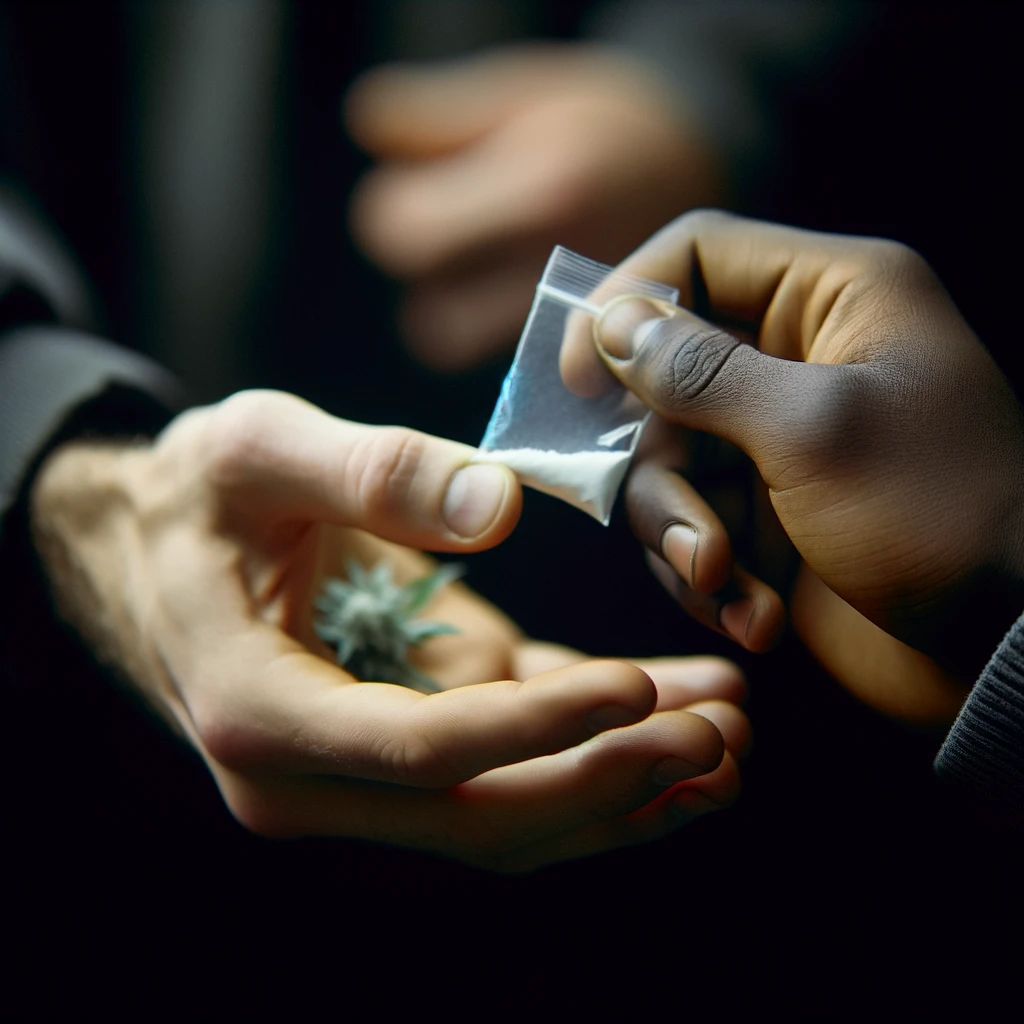Table of Contents
Understanding Minnesota’s Controlled Substance Crime in the Third Degree: A Detailed Guide for Duluth and Surrounding Areas
A Minnesota criminal defense lawyer, is essential to provide detailed and accurate information regarding Minnesota’s Controlled Substance Crime in the Third Degree statute. This statute is complex and encompasses various levels of crimes, penalties, and requirements. For individuals in Duluth, Bemidji, Hibbing, Virginia, Princeton, Brainerd, Grand Rapids, Cloquet, Fergus Falls, East Grand Forks, Detroit Lakes, Moorhead, and statewide, understanding this statute is crucial when facing charges.

Minnesota Controlled Substance Crime in the Third Degree: Understanding the Charges and Potential Penalties
The Full Statute for 3rd Degree Drug Crimes
Minnesota Statute § 152.023 outlines the offense of Controlled Substance Crime in the Third Degree, a serious felony with significant consequences. Navigating the complexities of this statute and building a strong defense requires the expertise of a skilled Duluth criminal defense lawyer.
152.023 CONTROLLED SUBSTANCE CRIME IN THE THIRD DEGREE.
Subdivision 1. Sale crimes.
A person is guilty of controlled substance crime in the third degree if:
(1) the person unlawfully sells one or more mixtures containing a narcotic drug;
(2) on one or more occasions within a 90-day period the person unlawfully sells one or more mixtures containing phencyclidine or hallucinogen, it is packaged in dosage units, and equals ten or more dosage units;
(3) the person unlawfully sells one or more mixtures containing a controlled substance classified in Schedule I, II, or III, except a Schedule I or II narcotic drug, cannabis flower, or cannabinoid products to a person under the age of 18; or
(4) the person conspires with or employs a person under the age of 18 to unlawfully sell one or more mixtures containing a controlled substance listed in Schedule I, II, or III, except a Schedule I or II narcotic drug, cannabis flower, or cannabinoid products.
Subd. 2. Possession crimes.
(a) A person is guilty of controlled substance crime in the third degree if:
(1) on one or more occasions within a 90-day period the person unlawfully possesses one or more mixtures of a total weight of ten grams or more containing a narcotic drug other than heroin or fentanyl;
(2) on one or more occasions within a 90-day period the person unlawfully possesses one or more mixtures of: (i) a total weight of three grams or more containing heroin; or (ii) a total weight of five grams or more, or 25 dosage units or more, containing fentanyl;
(3) on one or more occasions within a 90-day period the person unlawfully possesses one or more mixtures containing a narcotic drug other than heroin or fentanyl, it is packaged in dosage units, and equals 50 or more dosage units;
(4) on one or more occasions within a 90-day period the person unlawfully possesses any amount of a schedule I or II narcotic drug or five or more dosage units of lysergic acid diethylamide (LSD), 3,4-methylenedioxy amphetamine, or 3,4-methylenedioxymethamphetamine in a school zone, a park zone, a public housing zone, or a drug treatment facility;
(5) on one or more occasions within a 90-day period the person unlawfully possesses:
(i) more than ten kilograms of cannabis flower;
(ii) more than two kilograms of cannabis concentrate; or
(iii) edible cannabis products, lower-potency hemp edibles, hemp-derived consumer products, or any combination of those infused with more than 200 grams of tetrahydrocannabinol; or
(6) the person unlawfully possesses one or more mixtures containing methamphetamine or amphetamine in a school zone, a park zone, a public housing zone, or a drug treatment facility.
(b) For the purposes of this subdivision, the weight of fluid used in a water pipe may not be considered in measuring the weight of a mixture except in cases where the mixture contains four or more fluid ounces of fluid.
Subd. 3. Penalty.
(a) A person convicted under subdivision 1 or 2 may be sentenced to imprisonment for not more than 20 years or to payment of a fine of not more than $250,000, or both.
(b) In a prosecution under subdivision 1 or 2 involving sales or acts of possession by the same person in two or more counties within a 90-day period, the person may be prosecuted in any county in which one of the sales or acts of possession occurred.
MINN. STAT. 152.023.
Understanding the Levels of the Crime
The statute defines two main categories of Controlled Substance Crime in the Third Degree: sale crimes and possession crimes. Each category entails specific actions and corresponding penalties.
Sale Crimes: 3rd Degree Drug Charges in MN
A person commits a third degree controlled substance sale crime if they:
- Unlawfully sell any mixture containing a narcotic drug. This includes substances like heroin, opium, and cocaine.
- Within a 90-day period, unlawfully sell on one or more occasions ten or more dosage units of phencyclidine (PCP) or hallucinogens packaged in individual doses.
- Unlawfully sell to a minor (under 18) any mixture containing a controlled substance classified in Schedules I, II, or III, except for Schedule I or II narcotic drugs, cannabis flower, or cannabinoid products.
- Conspire with or employ a minor to unlawfully sell mixtures containing controlled substances listed in Schedules I, II, or III, with the same exception as above.
Possession Crimes: 3rd Degree Drug Charges in MN
A person commits a third degree controlled substance possession crime if they:
- Within a 90-day period, unlawfully possess on one or more occasions ten grams or more of a total weight mixture containing a narcotic drug other than heroin or fentanyl.
- Within a 90-day period, unlawfully possess on one or more occasions:
- Three grams or more of heroin.
- Five grams or more, or 25 dosage units or more, of fentanyl.
- Within a 90-day period, unlawfully possess on one or more occasions 50 or more dosage units of a narcotic drug other than heroin or fentanyl, packaged in individual doses.
- Within a 90-day period, unlawfully possess any amount of a Schedule I or II narcotic drug or five or more dosage units of LSD, MDMA, or methamphetamine in a sensitive zone, such as a school zone, park zone,public housing zone, or drug treatment facility.
- Within a 90-day period, unlawfully possess on one or more occasions:
- More than ten kilograms of cannabis flower.
- More than two kilograms of cannabis concentrate.
- Edible cannabis products, lower-potency hemp edibles, hemp-derived consumer products, or any combination infused with more than 200 grams of tetrahydrocannabinol (THC).
- Unlawfully possess methamphetamine or amphetamine in a sensitive zone.
Important Definitions and Requirements
- “Unlawful” refers to any possession or sale not authorized by a valid prescription or license.
- “Mixture” encompasses any combination of a controlled substance with another substance.
- “Dosage unit” refers to a single capsule, tablet, or other form of the drug intended for individual consumption.
- The 90-day period is counted backward from the date of arrest or charge.
Penalties for Controlled Substance Crime in the Third Degree
A conviction for Controlled Substance Crime in the Third Degree carries significant penalties:
- Maximum Imprisonment: Up to 20 years in prison.
- Maximum Fine: Up to $250,000.
- Additional Consequences: Probation, mandatory drug treatment, and a criminal record that can severely impact employment, housing, and other aspects of life.
Navigating the Complexities of the Statute: Third Degree Drug Crimes in Duluth, MN
The nuances of Minnesota Statute § 152.023 and the potential consequences of a conviction demand the guidance of an experienced Duluth criminal defense lawyer. A lawyer can:
- Analyze the specific details of your case to determine the most appropriate defense strategy.
- Challenge the prosecution’s evidence and investigate potential weaknesses in their case.
- Negotiate with prosecutors for reduced charges or lighter sentences.
- Represent you in court and fight for the best possible outcome.

Defending Against Third Degree Controlled Substance Charges in Minnesota: Knowing Your Options
Facing charges of Controlled Substance Crime in the Third Degree in Minnesota can be overwhelming. However, a strong defense strategy built on understanding potential legal loopholes and challenges to the prosecution’s case can significantly increase your chances of a favorable outcome. This section will explore some key defenses you can consider with the guidance of your Duluth criminal defense lawyer.
Challenging the Elements of the Prosecution’s Case
The prosecution must prove every element of the specific crime you are charged with beyond a reasonable doubt. Identifying weaknesses in their evidence or raising questions about their case can create reasonable doubt and potentially lead to dismissal of the charges. Some potential challenges to third degree drug cases that a lawyer may employ include:
- Lack of Intent to Sell: In sale crime cases, demonstrating that you lacked the intent to sell, for example, by proving you were merely sharing substances with friends, could weaken the prosecution’s case.
- Chain of Custody Issues: Challenging the legitimacy of how the alleged controlled substances were collected,analyzed, or stored can raise doubt about the evidence itself.
- Mistaken Identity: If you were misidentified as the person involved in the alleged crime, presenting evidence to establish your alibi or disprove your presence at the scene can be crucial.
- Entrapment: Demonstrating that law enforcement officials induced or pressured you into committing the crime,even unknowingly, can lead to charges being dismissed.
Constitutional Violations
Your attorney can analyze the actions of law enforcement during your arrest or investigation to identify potential violations of your constitutional rights. Such violations, like illegal searches or seizures, may render evidence inadmissible in court and necessitate dismissal of the charges.
Alternative Explanations to Third Degree Drug Crime Accusations in Minnesota
In possession cases, if you can provide a legitimate explanation for possessing the controlled substance, such as having a valid prescription or being unaware of its presence in your belongings, it can cast doubt on the prosecution’s claims.
Medical Conditions
In some cases, a defense based on a medical condition that necessitates the use of certain substances, like chronic pain management with cannabinoids, can be explored. However, this requires careful evaluation and expert testimony to present a compelling case.
Cooperation and Rehabilitation
Demonstrating remorse, taking responsibility for your actions, and actively pursuing rehabilitation through programs or counseling can help paint a positive picture for the court and potentially lead to reduced charges or lighter sentencing.
Remember: These are just some potential defenses, and their applicability will depend on the specific circumstances of your case. Consulting with a skilled Duluth criminal defense lawyer is crucial to determine the most effective defense strategy for your situation.
While these defenses offer hope, navigating the complexities of legal arguments and effectively presenting your case requires the expertise of a skilled legal professional. Do not hesitate to seek the guidance of an experienced Duluth criminal defense lawyer who can fight for your rights and protect your future
Frequently Asked Questions about Controlled Substance Crime in the Third Degree in Minnesota
Facing charges of Controlled Substance Crime in the Third Degree can raise numerous questions and concerns. Here are answers to some frequently asked questions to help you better understand the charges and your options:
What are the specific substances that fall under Controlled Substance Crime in the Third Degree?
The statute covers a wide range of controlled substances, including:
- Narcotics (e.g., heroin, opium, cocaine)
- Phencyclidine (PCP)
- Hallucinogens (e.g., LSD, MDMA)
- Amphetamines (including methamphetamine)
- Cannabis (marijuana) and its derivatives (e.g., cannabis flower, concentrates, edibles)
What are the differences between sale crimes and possession crimes under this statute?
- Sale crimes involve the unlawful sale, distribution, or delivery of controlled substances to another person.
- Possession crimes involve the unlawful possession of controlled substances for personal use or without the intent to distribute.
What are the potential penalties if I’m convicted of Controlled Substance Crime in the Third Degree?
- Up to 20 years in prison
- A fine of up to $250,000
- Probation
- Mandatory drug treatment
- A criminal record
What factors can influence the severity of the sentence?
- The type and amount of controlled substance involved
- Whether the crime involved sale or possession
- Whether the crime occurred in a sensitive zone (e.g., near a school, park, or drug treatment facility)
- The defendant’s criminal history
- The defendant’s willingness to cooperate with authorities or seek rehabilitation
What are some possible defenses to these charges?
- Lack of intent to sell
- Chain of custody issues
- Mistaken identity
- Entrapment
- Constitutional violations
- Alternative explanations (e.g., valid prescription, unaware of substance presence)
- Medical necessity
- Cooperation and rehabilitation efforts
What should I do if I’m facing these charges?
- Remain silent and do not speak to law enforcement without an attorney.
- Contact a qualified Duluth criminal defense lawyer immediately.
- Discuss the details of your case with your lawyer to determine the best defense strategy.
- Follow your lawyer’s advice and instructions.
Can a lawyer help me even if I think I’m guilty?
Yes. A lawyer can still help you negotiate a plea deal for reduced charges or a lighter sentence. They can also ensure your rights are protected throughout the legal process.
What are the benefits of hiring a lawyer?
- Lawyers have a deep understanding of the law and legal procedures.
- They can investigate your case, gather evidence, and identify potential defenses.
- They can negotiate with prosecutors on your behalf.
- They can represent you in court and protect your rights.
- They can provide guidance and support throughout the legal process.

Duluth Third Degree Controlled Substance Crime Defense Lawyer
Facing Third Degree Controlled Substance charges in Minnesota is undoubtedly a daunting scenario. The potential consequences are severe, and navigating the legal labyrinth alone can be a disorienting experience. This is where a skilled Duluth criminal defense lawyer becomes your indispensable ally. They are not just legal pros, but fierce advocates, ensuring your rights are protected, building a robust defense, and negotiating tirelessly for the best possible outcome. From dissecting the prosecution’s case to presenting a compelling defense in court, they stand beside you every step of the way, offering valuable guidance and unwavering support. Remember, you don’t have to battle this alone. Invest in your future, your freedom, and your peace of mind. Contact a Duluth criminal defense lawyer today and let them fight for you.